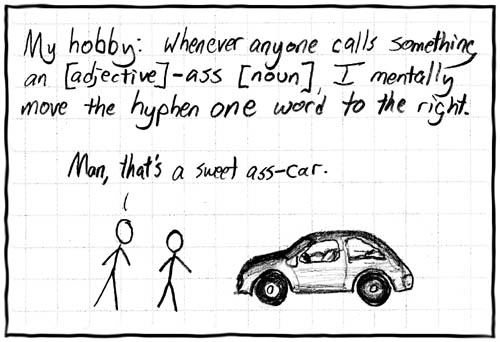I'm gonna try to quickly summarize something that I think we all understand, but maybe never really consider. The difference between a game's dynamics and its themes. A game's mechanical genre is what we generally talk about: Shooter, Platformer, Puzzle, etc. A game's thematic genre is a little more rare/undiscussed. Things like horror, science fiction, and fantasy are all pulp genres of fiction, and they can apply to games too.
It's pretty easy to apply them too. Though, it's important to remember that these are themes, not just settings. Deus Ex: Human Revolution, is very clearly a science fiction, as it deals with the potentials that science has to offer. Star Wars: The Old Republic, is thematically more similar to fantasy or adventure, as the actual repercussions of scientific development are not really explored.
There has often been discussion of horror being classified as either "survival horror" or "action horror", and about how this is some sort of problem. This "infographic" is one of the most famous examples of riling people up for the sake of cheap jabs.
It's on to something, but it's also very obviously biased. It's labelling all the stuff on the left as "actually scary, worthwhile" and everything on the right as "cheap, imitation". It surprisingly touches on a very interesting point while attempting to make this jab. Simply that, all of this is horror, thematically. The differences here are mechanical, and because of that, your mileage may vary. Some might find that the action is not empowering, but panic-inducing, and may find games such as Clock Tower or Alone in the Dark too slow and methodical. Likewise, it's evident that many find the action elements and feeling of control undermines their ability to feel scared.
Confusing thematic and mechanical elements is rather common when analyzing game design. Well, confusing the domain of elements, in general, is something that confuses many. Why, for example, the "first person" part of FPS isn't actually as important as the "shooter", is a topic that has confused many. We see terms like "first-person puzzler" thrown around for games like Portal, which is cute, but quite distracting. It's an Adventure game through-and-through, but then we're often dealing with the problem that people think Adventure is equated to Indiana Jones and Uncharted: Drake's Fortune. And they're right, thematically. Just not, mechanically.
This is why action-adventure is such a frustratingly generic term. It encapsulates all those games like Jak 2 and Tomb Raider that we're not really sure where to put. People get confused, trying to piece the action elements and the Adventure elements together. In my opinion, the hyphen is simply in the wrong place.
It's easy to read "action-adventure game" as "action adventure-game", which is completely misleading. After all, we're generally not (though sometimes we are) dealing with games about environmental interaction that have a theme about action. Which is why, personally, I prefer to write "adventure action-game". Games like Uncharted are all about the action. Remember in game design, it's do, then show, then tell. Similarily, I would say that when describing a game, genre order is best listed in mechanic, then thematic, then setting.* Uncharted has tons of themes about adventure, as does Tomb Raider, however they mechanically are all about immersing you in action scenes.
And returning to our age-old-nemesis, survival horror: Horror survivor, Horror action, Horror Adventure , Horror RPG... all easier to read, yeah? You instantly know what you're dealing with, mechanically and thematically.
---
* Okay, time for an english language quirk. It'll be written in the opposite order. This is because the last descriptor will have the most weight. {game} is a [setting] [theme] [mechanic] . So, for example, Fallout 3 is a post-apocalyptic satirical role-playing-shooter.


No comments:
Post a Comment